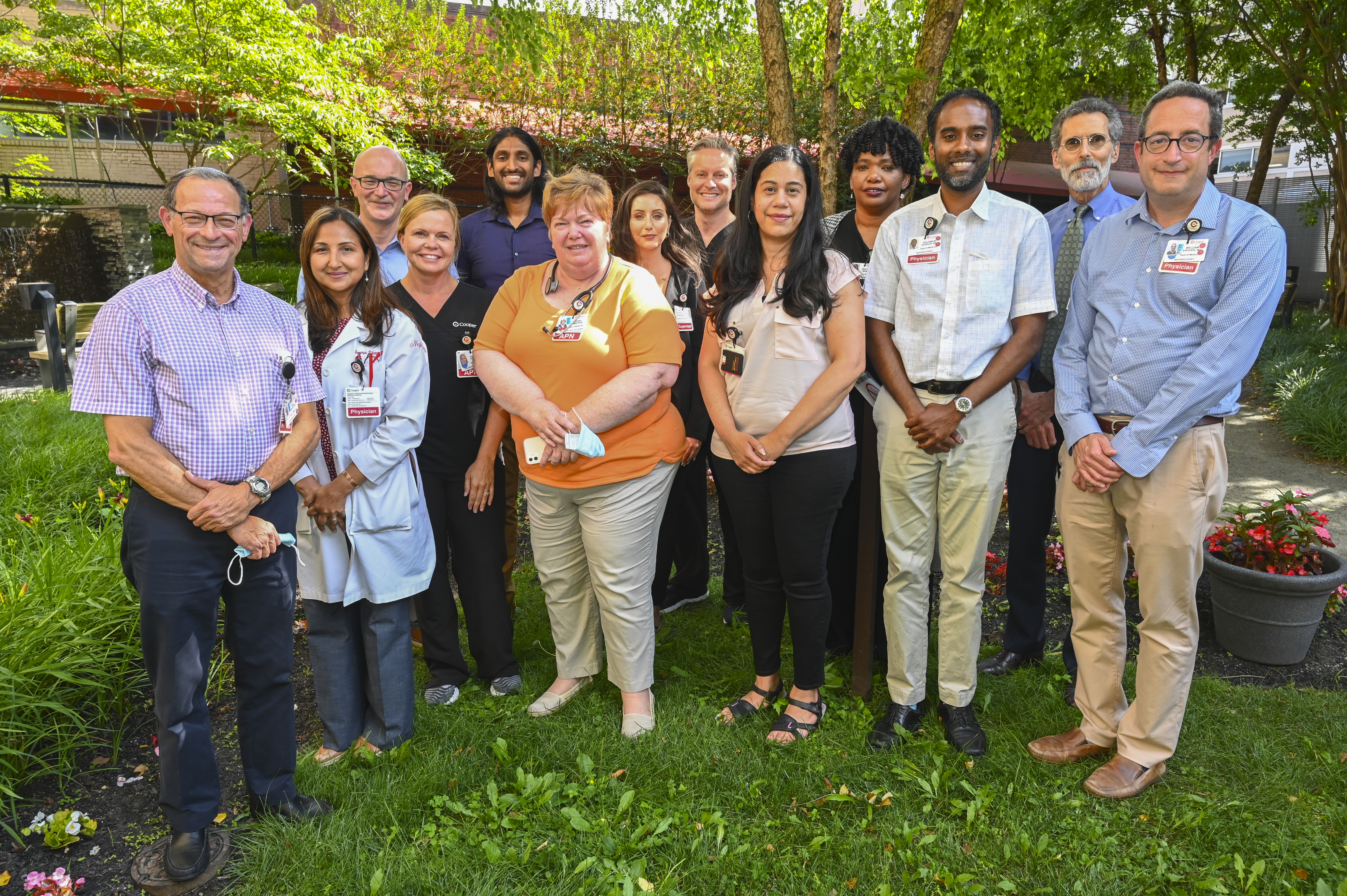Inpatient Service:
Starting early in the first year of fellowship, fellows will have their in-patient service time alternate with elective and outpatient weeks. Approximately 40% of a nephrology fellow's average time is spent on the inpatient consult service, though the inpatient requirement is somewhat less during the second year.
Continuity Clinic:
One half-day a week starting during the first month of fellowship.
Call:
Faculty and Fellows take home call. Fellows take weeknight call one out of four nights and take weekend call one out of four weekends on average. ACGME-regulated duty hours are strictly enforced.
Vacation:
4 weeks of vacation are built into every fellow's schedule each year.

Scholarly Requirements:
All fellows are required to complete one quality improvement project and one scholarly activity during their fellowship. Time will be dedicated toward these activities during the elective and non-inpatient service weeks.
Advanced Practice Providers:
Our department has a strong group of experienced nephrology advanced practice providers (APP) who round in the outpatient dialysis clinics, outpatient CKD clinics, and inpatient hospital service. They have been with our department for many years and serve as a wealth of clinical information for trainees. Fellows are never directly supervised by an advanced practice provider, but our APP colleagues help support the learning environment of the fellow, allowing fellows to preserve time for education and teaching.
Benefits and Salaries: Please explore the main Cooper Fellowship website for information regarding these topics.
Locations:
Our main hospital is located at 1 Cooper Plaza in Camden, and the continuity clinic is located across the street at 3 Cooper Plaza in Camden. These locations are easily accessible by car or public transportation (PATCO or Riverline). All of the dialysis units and other clinics where fellows will be scheduled are within 15-20 minutes driving distance of this central location. These are generally poorly accessible by public transportation, and it is convenient to have a car or rideshare for this fellowship. Transplant rotations will be completed in University City in West Philadelphia, which is easily accessible either by car or public transportation.
Fellows have historically lived in either Philadelphia or South Jersey. Our faculty are also about evenly split between these urban and suburban locations.
